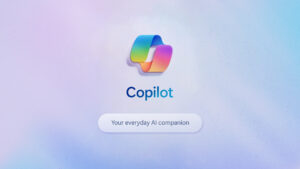
Browsers worked on most machines of the time. I already had an Internet account, and it was years before a broadband upgrade was available. The Internet, in other words, was free.
AI won’t be free.
Delivering AI will require upgrades across the computing world. Clouds are already being upgraded, which is why Nvidia is such a hot stock. Microsoft made it clear today that PCs will need upgrades to take advantage of AI. You’ll need an “AI PC” as you needed a “multimedia PC” back then. I’m not worried about Apple because next year you’ll need an “AI Phone” too.
But that’s just the start of it. Using AI is going to cost you money. Microsoft’s opening bid is $30/month for Co-Pilot, and whether that holds with rivals there’s going to be some subscription fee. Just as with streaming, you will also see limiting choices. The time limit on using streamers will be matched with an attention limit in using AI systems. People will become loyal to one-or-another AI solution as they now show loyalty to Netflix or Amazon Prime.
How You Will Pay

This isn’t going to be as true on the server end. Amazon, Google, and Microsoft cloud prices won’t change much. They’ll just sell more. More storage, more bandwidth, more computing power. Even if prices start going down again, as they should, clouds will do fine regardless, which is why they’re not objecting to Nvidia’s pricing.
My legitimate fear is that this builds an even bigger gulf between small business and big business and reduces the “social mobility” we’ve come to expect in the business world. Even though it’s very difficult for a poor man to become rich, it’s still very possible for a rich company to become poor if it screws up. It’s important we maintain both that, and the ability of a small company to become big. None of today’s Cloud Czars are 50 years old, and Meta is just 20.
How much you pay for AI, who you pay it to, and how you get value from it remain opaque questions. How companies get their money out, and how much, will also determine how far and fast the AI revolution goes.










